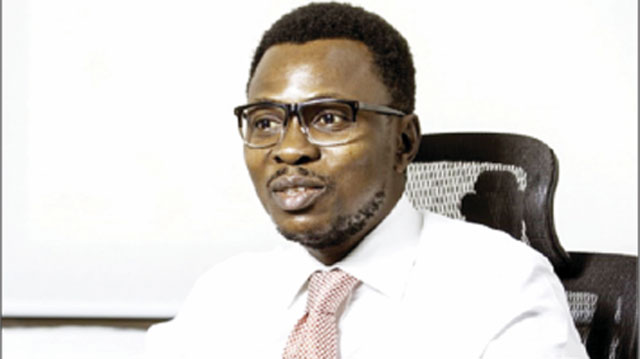
The need to improve energy production, distribution and accessibility has continued to be on the front burner of national discourses both at home and in the diaspora. Experts and stakeholders alike look forward to a future where energy can be available for use across the various socio-economic sphere of Nigeria’s life, powering local production and ultimnately the economy. In this interview, Sterling Bank’s Group Head of Oil & Gas, Power and Renewable Energy, Dele Faseemo, speaks on the potential of renewable energy, its growing adoption across the world as well as the role of the bank in leading the local production, financing and distribution of a clean and alternative source of energy, among other sundry issues. Excerpts:
Nigeria’s power/electricity landscape and growth market currently focus on other sources of power generation. Do the trends and outlook favour renewable energy as a sustainable option in the power market?
It is true that until lately, limited attention had been paid to power generation from renewable energy sources in Nigeria. However, there is a growing and coordinated focus on renewable energy as a viable source of energy generation in the country. This growing attention is driven by both the global trend and outlook in terms of rising investments in the sector.
For instance, global electricity output could double by the mid-century with clean energy, chiefly led by wind and solar power, estimated to account for more than half of this growth. Commercial viability of renewable energy projects is improving as the business case for energy transition is now reinforced by improving production efficiencies, financial and economic benefits. And then we have a dynamic energy market conditions with more players, higher output and a growing adoption.
In addition, the global energy demand is growing at more than two percent on a cumulative annual growth basis driven by population growth and rising income levels. However, about 13 percent of the global population still lack access to electricity. Depending on what data source you work with, access to electricity in Nigeria is less than 55 percent of total population and this number could be less than 30 percent in our rural population.
In essence, our reliance on fossil fuel for power generation has not paid off over the years and this has had dire consequences on economic growth and development.
At the national level, I think the Federal Government now appreciates this reality and that might have informed the newly launched 5 Million Solar Connections Project Initiative targeted at connecting about 25 million people and creating at least 250,000 new jobs. In terms of sustainability, there is growing evidence in Europe and other parts of the world that renewable energy can power large-scale industries and installations and Nigeria’s natural endowments put us at an advantage, especially with local production and technical capacity being developed.
The power sector is dominated by thermal electricity generation, which accounts for more than half of the total electricity generation in the country. However, it seems the importance of renewable energy to the power mix is not yet a front burner. What case can you make for the sub-sector?
Altering the current energy-mix in Nigeria with a coordinated energy transition plan is a required strategic agendum if we must solve our energy crisis. The share of renewable energy output in Nigeria, excluding hydro, is estimated at less than 20 percent today – whereas in Europe for example, this is somewhere around 42 percent on the aggregate and that number is growing.
As I mentioned earlier, energy access and transition is a required component for a meaningful economic growth and development agenda.
The strategic benefits and opportunities, including our abundant natural endowment, for renewable energy adoption in Nigeria are almost endless, if we execute it well. If you consider the learning curve advantage over Europe and America, available and rising global investment capital in renewable energy; improving technology and production efficiency in terms of declining prices, better economics, increasing adoption; availability of global partnerships; possible integration into our existing grid; customised financing to unlock sector potential; the opportunity for circular economy in terms of recycling and waste-to-wealth; the potential for multi-sector impact on Health, Education, Agriculture and Transport; opportunity for scalable and disaggregated power generation systems including mini/micro-grids; Solar Home Systems, etc.; you will agree with me that the opportunities are huge.
At the micro level, when you look at the fact that the adoption of renewable energy offers long-term operational expense (OpEx) optimisation for businesses and how Solar Home Systems (SHS) are helping households and residential estates to manage and stabilise their energy costs. All these are benefits, opportunities and strategic reasons we cannot ignore that sub-sector in the long term.
The government’s import waiver policy can fast-track the unbundling of renewable energy equipment, no doubt. However, is the status quo a reflection of this understanding?
We always preach financial and commercial sustainability in this space. So in the long run, the sector will compete favourably with any other sector under the same macro-economic and policy conditions. However, to accelerate adoption, fiscal support in the form of duty waivers or concessions on renewable energy equipment will be very useful in managing implementation cost, especially when you consider that exchange rate makes it hard for us to get the benefits of declining global production costs of renewable energy components including panels and batteries. However, we are aware of the various levels of engagements on this matter and the long-term solution of ensuring there is local production which should reduce and ultimately eliminate the need for imports.
Energy and sustainable development goals are mutually inclusive. For a developing economy as Nigeria, how will renewable energy bridge the gap; especially as it affects access to electricity in rural areas?
I think the Federal Government appreciates this point and this may explain why energy access is a key component of the Government’s Economic Recovery and Growth Plan. Renewable energy is perhaps the quickest way to achieve the level of electrification we need in the country today going by the array of benefits earlier discussed.
Electricity is a service that carries a price tag, with investors seeking a return that can be assured. Yet there is a huge gap in revenue collection which impacts negatively on the market. How best can the industry build a win-win partnership with the last mile?
The issue of aggregate technical, commercial and collection losses has been a perennial challenge with the existing and mostly fossil fuel-powered electricity source(s). Our power need is best served by alternative energy, given its potential for disaggregation and the private sector leadership with existing credible and sustainable commercial and financing models.
With the level of long-term and affordable financing initiative by Sterling Bank PLC, electricity consumers can have access to a better power supply at a good cost. Having said that, Nigerians are beginning to appreciate the real cost of owning, fueling and maintaining diesel or petrol power generating sets. The nominal costs of powering those energy sources are rising and when you look at other downsides like environmental pollution in terms of noise and smoke, it is easy to understand why a switch to renewable energy is a smart decision to make.
Nigeria is endowed with renewable energy resources like wind, solar, biomass and hydropower but currently generates a small amount of energy from these sources. If we are to meet the target of expanding our energy access to 90 percent of the population by 2030, what should be the focus of the country?
Our natural endowments remain a good starting point. However, it is only a necessary but not sufficient condition. Developing a strategic policy framework around it should help us leverage that advantage. The focus must be deliberate, coordinated and sustained.
COVID-19 has changed the world from what we have always known it to be. Businesses have now embraced the new normal of doing things and countries are exploring the window of opportunity that the pandemic presents, especially in accelerating access to clean energy and promoting economic resilience. In your opinion, is Nigeria taking an advantage of this?
The COVID-19 pandemic tested our collective resilience and in some cases validated or disproved certain business models. I think the impact on energy access, from renewable energy point of view, has been positive. We saw a number of isolation centres powered by solar panels with moderate set-up costs and quick deployment turn-around time.
Internet access needed for remote work during the full lockdown required constant energy access which the current grid supply could not adequately cater for. However, those with renewable energy access, especially solar power, were able to stay connected. Our desire is to see this as a norm rather than an exception. We need to do more, and speedily too, to make access to stable, clean and affordable power a reality in Nigeria.
What opportunities are there for small business owners and entrepreneurs in the renewable energy space in Nigeria?
The opportunities within the renewable energy space are immense for MSMEs. There are many Solar Home System vendors today seeking credible distributors for their products. There are portable energy solutions being adopted by micro businesses who need a limited amount of electricity to run their trades. There are solar-powered refrigerators and freezers for small businesses dealing in frozen foods. Moreover, schools, hospitals , hotels, eateries and other small and medium-sized businesses can all benefit from this source of power with significant long-term savings. You will find it interesting that an increasing number of filing or petrol stations are being powered by solar energy solutions.
The world’s attention is focused on a future of clean, renewable and sustainable energy. However, the attendant high costs of renewable energy investment compared to traditional energy investments are a major challenge as access to finance is a key determinant. What role can banks play in financing renewable energy for easy accessibility?
There is a growing attention in the domestic financial industry on the need to support energy access with renewables. Sterling Bank, as much as we can, is proudly leading this effort. However, I think banks can do a lot more. For instance in Sterling Bank, we have developed a customised financing framework that allows us to support the entire spectrum of renewable energy development and deployment. So, whether you are an intending manufacturer or assembler, a solar home system vendor, a retail distributor or an end-user for domestic, commercial or industrial purposes, there is appropriate financing available for you at Sterling Bank.
We are not doing this alone and neither are we doing it the traditional way. Our leadership role in the sector is predicated on a model built around partnerships, financing and access to market. We are seeing a growing adoption, and we are getting the benefits and we remain committed to it.






